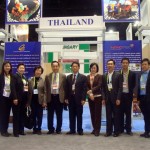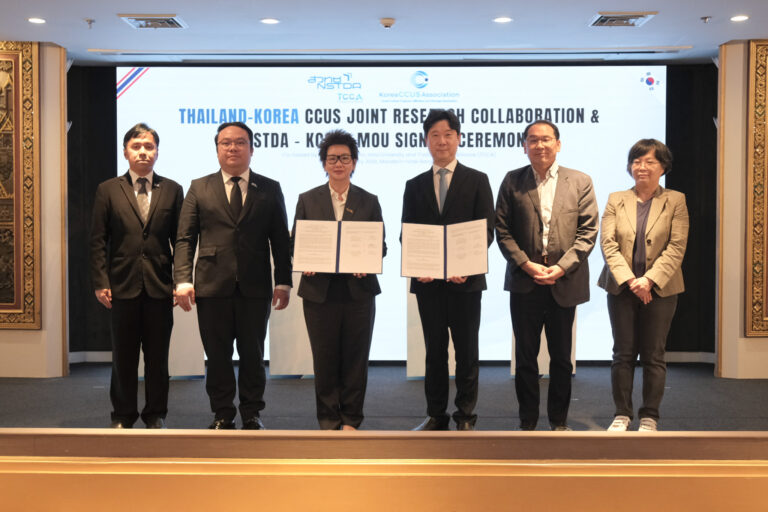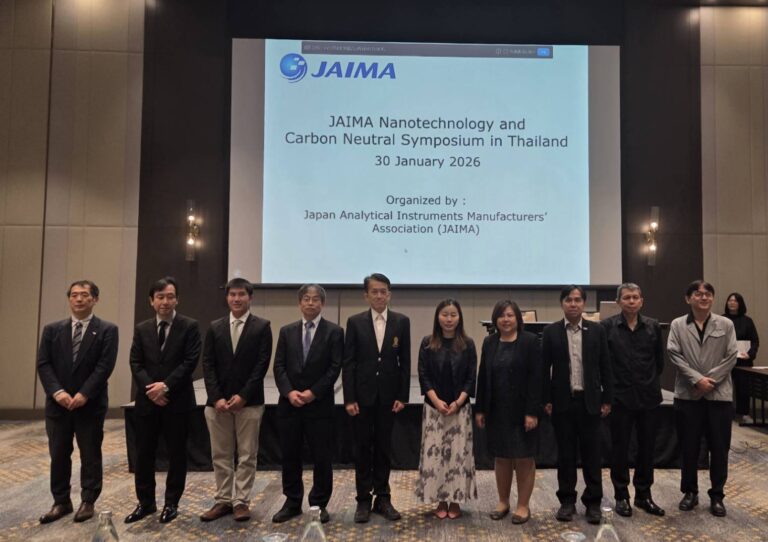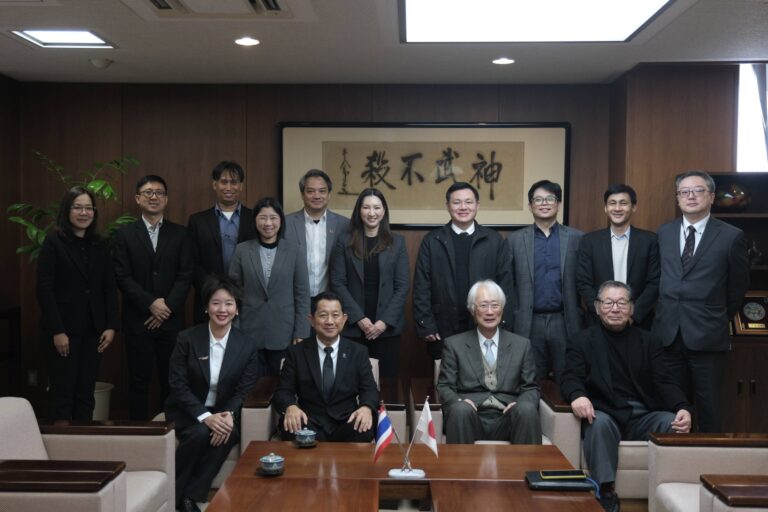The Thailand Board of Investment (BOI) and Thailand Center of Excellence in Life Sciences (TCELS) hosted a dinner talk during the recent BIO 2013 International Convention in Chicago, USA. Prof. Sirirurg Songsivilai, Executive Director of National Nanotechnology Center (NANOTEC) was invited to give the keynote talk to interested investors and entrepreneurs attending BIO 2013.
Prof, Sirirurg cited that BIO is an excellent venue to showcase Thailand’s advancement as a global player in the agricultural and medical sector. “Thailand’s drive to be a key player in the agricultural and medical sector requires us to stay up-to-date on technology advancement and to establish strategic alliance with key partners” said Prof. Sirirurg. “The scientific seminar, specific exhibitions highlighting world class biotechnology research, including prospect for business partnering at BIO are certainly attractive considerations for countries such as Thailand to make an investment to participate”.
Prof. Sirirurg went on to inform that factors which helps to contribute to Thailand’s advancement in both the agricultural and medical sector are resources, availability of expertise, and favourable market size.
According to Thailand’s Public Relations Office, Thailand’s agricultural economy grew by 4% in 2012 this is due to favorable climate condition following the flood crisis in late 2011. The crop sector such as rice, tapioca, rubber, oil palm, and fruits grew by 5% this is primarily due to an increase in export demand. The livestock sector also did not miss the growth train as it saw an increase of 3% in production of chicken, pork, egg, and raw milk.
As for the medical sector, it is a well known fact that Thailand is a heaven for those looking for advanced medical treatment by international trained staffs and at a cost that does not break one’s bank account. Thailand has set a target of 3 million medical tourists by the year 2015. Currently, it stands at about 2 million. The annual growth rate of Thailand’s medical sector is 14% with growth in both major surgical procedures and standard medical care.
The coming of age of the ASEAN Economic Community (AEC) in 2015 is also a contributing factor to supporting the importance of BIO to Thailand said Prof. Sirirurg. The AEC with a power house of over 600 million people is considered an attractive market for global investors. In order for Thailand to effectively play its role as a member of AEC it is necessary to up investment in technology development. For this reason, the Thai government recently announced its decision to approve a 2.2 trillion baht to boost the country’s transport system including a massive increase in rail services. The government hopes this initiative will encourage increase in trade and investment.
Prof. Sirirurg also said that it is important to note that the Ministry of Science and Technology recently announced it will allocate 2 billion baht over five years to building facilities and systems that will promote Thailand as the production center for advance medical robots and regenerative medicine. “We have appropriate skilled human resources in robot development and medical engineering” said Prof. Sirirurg. “If we want to become Asia’s healthcare hub it is necessary we utilize this expertise and minimize the need to import robots from overseas”. Prof. Sirirurg added that over half of the research activities at NANOTEC concerns with nanobiotechnology. For this reason, NANOTEC strives to building partnership and participating in activities which it considers are strategic for its development.
Thailand has been leading delegations and participating as an exhibitor in BIO International Convention for the past several years. For BIO 2013 both BOI and TECELS were the key contact and Thailand team leader.





